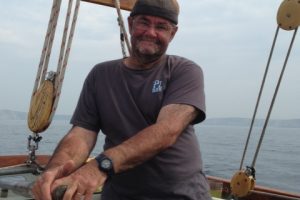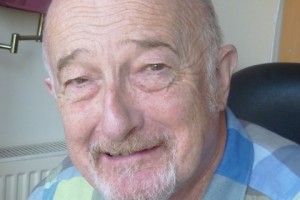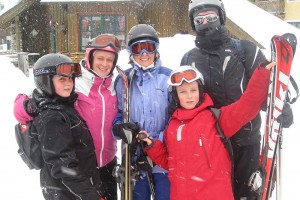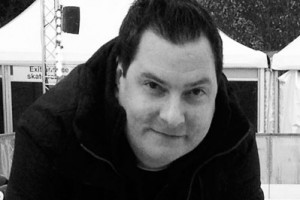Personal stories
Andy’s Story – It’s all about knowledge, skills and confidence
Share this on – Facebook / Twitter / Linked In


My name is Professor Andy Demaine. I would like to begin by taking you back to the 21st July 1969, I was 12 years old age and Neil Armstrong was landing on the moon and I was waking up from a coma looking up at a black and white television on the ceiling above my intensive care bed, just as he took the ‘that’s one small step for man, one giant leap for mankind’.
I’d been taken acutely ill on 7th July 1969 whilst swimming for my school in Torquay. Within a matter of days I was on peritoneal dialysis in Exeter and in acute renal failure. I was lucky to live in Torquay as most renal units refused to treat anyone under the age of 18. If I had been living in Bristol I wouldn’t be standing here today. At the time, treatment for renal disease was crude and experimental. Blood access sites through the skin for haemodialysis became regularly blocked with clots that required painful removal, you were on a salt free, low protein starvation diet. Low blood pressure was a regular occurrence, often causing fainting on standing. Attendance at my school – Torquay Boys’ Grammar was impossible.
To control my disease I had my own kidneys removed a few months later and dialysed 2-3 times per week, each session lasting 10-12 hours tied to a dialysis machine. I was fortunate that Sir Roy Calne, a renowned pioneer of kidney transplantation had offered to perform my transplant if I survived long enough. On 1st October 1970 I received the best gift of all, a kidney from my dad in an operation that took place at Addenbrooke’s Hospital, Cambridge. There were anxious days post-operatively with episodes of rejection. In early December I was well enough to return home to Torquay after the annual transplant reunion party.
My first transplant lasted until July 1974 when it was removed in Cambridge due to chronic rejection. I was once again on dialysis. My first transplant saved my life. From 1969 to 1974 treatment for kidney disease had improved out of all recognition. The disposable artificial kidney had arrived, blood access sites had improved together with a better understanding of diet. I was allowed to eat baked beans during dialysis!
I returned home to Torquay and the renal unit at Exeter organised my home dialysis using one of the first portable kidney machines – about the size of a large microwave. I was back on the waiting list for a new kidney. I was still too ill to go to school and still only 17 years old.
The telephone call came at around 9.30 in the morning on Saturday 9th November. I’d just arrived home by hospital car having spent Friday dialysing and the evening at an Exeter kidney patient’s barn dance in South Molton – drinking vodka and lime!
It was torrential rain and I managed to persuade our local police force to organise an escort all the way to Cambridge. The kidney came from Cardiff and was an identical tissue match. Unfortunately, due to my exuberance of drinking vodka and lime my potassium levels were extremely high – I should be in heart failure, never mind having major surgery. Before I could have my operation I was fed a horrible clay paste to get my potassium levels down. I went to theatre late in the evening, I was the first of three kidney transplants performed that night. It didn’t start working properly until the twelfth day and although the medical team had worries I had no doubts. I always believed it was going to work.
After nearly three months at Cambridge I returned home and back to school. This kidney changed my perspective on life. I worked endlessly on my A levels hoping to get a place in Medical School. I got the grades but no place. Instead I went to Leeds University to read Biochemistry. I had an amazing three years. No one new I’d had a transplant, I just wanted to be normal like everyone else. It was the first time I could drink beer! I rode a large motor bike, life was great! The need to dispel the past was immense and I changed my name before graduating from Leeds.
However, I couldn’t get away from the need to be involved with understanding my disease. Consequently, my first job was as a tissue typist at Guy’s Hospital. As well as being on call for kidney transplants my manager, and lifelong mentor Professor Ken Welsh, who recently died of motor neurone disease, offered me a research project that quickly developed into my PhD, looking at the genetics of renal disease. It was incredibly inspiring, writing research papers and grants. It was here that I met my soulmate, collaborator and future wife Ann, who came to the laboratory to finish her clinical research degree. I obtained a RD Lawrence fellowship from Diabetes UK to study diabetic kidney disease and moved to King’s College and had my own research group. In 1993 we moved to Plymouth to set up a new medical school. The research gained international importance and at retirement I had supervised more than 45 MD and PhD students!
We’ve been really lucky to have had three wonderful children. Lucy our eldest has just started work as a junior doctor in Wales, whilst Olly our youngest, is reading economics at Exeter. Our middle son Tom was tragically killed in a road traffic accident last September at the age of 22 having just started a new job in Bristol. We were desperately sad that his organs could not be used for anyone.
In my spare time I’ve played prop forward in rugby – unbeknown to my medical team, I coach rugby at club, county and regional level; enjoyed skiing black runs and keeping up with the kids – until my knees packed up! And sail our traditional Cornish working boat around Brittany.
Since retirement I decided to take up a new challenge and to use my experience and knowledge to enhance the patient experience and empowerment. I consider myself to be an ‘expert patient’ and am currently involved in the NHS England and UK Renal Registry ‘Think Kidneys’ Transforming Participation in Chronic Kidney Disease (TP-CKD) project. The possibility of using various interventions to change an individual’s attitude and confidence in dealing with CKD, together with the health care professionals is enlightening, and could be a powerful means of dealing with all chronic diseases. Patient empowerment and activation must be at the forefront of any strategic plans for NHS England to deal with CKD and other chronic diseases over the next 5 years.
It’s now been nearly 42 years since I had my transplant. My kidney has allowed me to lead a truly varied and exciting and healthy life and I am passionate about raising awareness of organ donation to ensure that others may have the same benefits that I enjoy.
Personal stories






